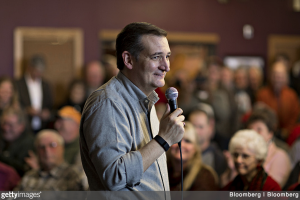My husband David French is not happy with the GOP Presidential slate of candidates who are sending a terrible message to a broken and fragile world.
After days of halting answers from Jeb Bush, it now looks like a rough consensus is emerging in the Republican presidential field. Jeb Bush, Ted Cruz, Marco Rubio, and Chris Christie all agree: If they were president and they knew that our sworn enemy, the terrorist-supporting Saddam Hussein, only possessed thousands of deteriorating chemical warheads — rather than thousands of fully functional chemical weapons — they would not have invaded Iraq. Their answers to this question — which was designed mainly to remind the American people how much they hated the Iraq War and to force Republicans to distance themselves from George W. Bush — are troubling on two counts.
First, they allow the Left to define the terms of the debate by limiting our hindsight to the lessons we’d learned by 2005 — when we were fighting a losing war in a deteriorating nation perceived to be devoid of WMDs. But this is 2015, and we know much more — including that a chemical-weapons arsenal existed, that the insurgency could be defeated, and that the example of Syria shows that the alternative to deposing Saddam wasn’t necessarily greater stability but potentially even worse genocidal chaos.
Most importantly, hindsight also teaches us that American withdrawal from Iraq led to military disaster that cannot be easily reversed — much less stabilized — by a limited air campaign. So, knowing now what we didn’t know then, the answer is a smarter intervention, not the same intervention — an intervention that combines the tactics and lessons of the Surge with the staying power we’ve demonstrated in other volatile hot spots, like Korea. The alternative — as we know — is a growing jihadist menace, genocide against Christians and other religious minorities, and increased instability in a geopolitically vital region.
On a deeper level, however, the answers raise doubts about leadership and resolve. We have learned multiple hard lessons since Vietnam — including the simple truth that limiting the application of military force tends to prolong military conflict without achieving decisive results. But there is perhaps no more important takeaway from the last 40 years than that presidents must continually and forcefully make an effective argument for the hard choices that are so often necessary when confronting insurgent enemies. Effective presidential leadership involves not just choosing the right commanders and overseeing the right tactics, but also using the bully pulpit of the presidency to make the case for the sacrifice necessary for success.
It’s hard to escape the feeling that the unanimity in post-hoc opposition to the Iraq War among the GOP presidential contenders is born less from considered conviction than from an ability to read polls.









